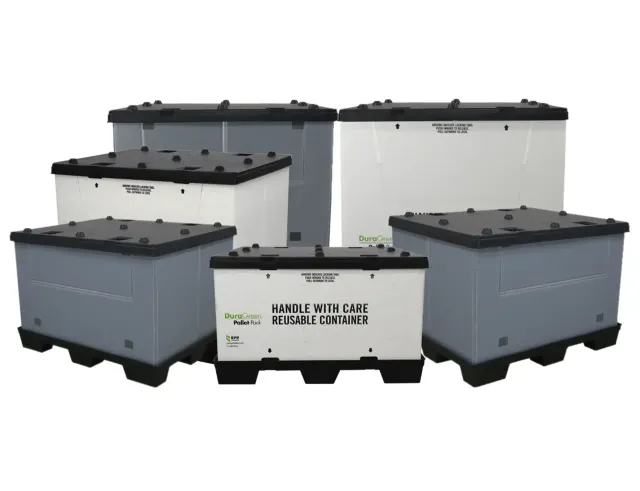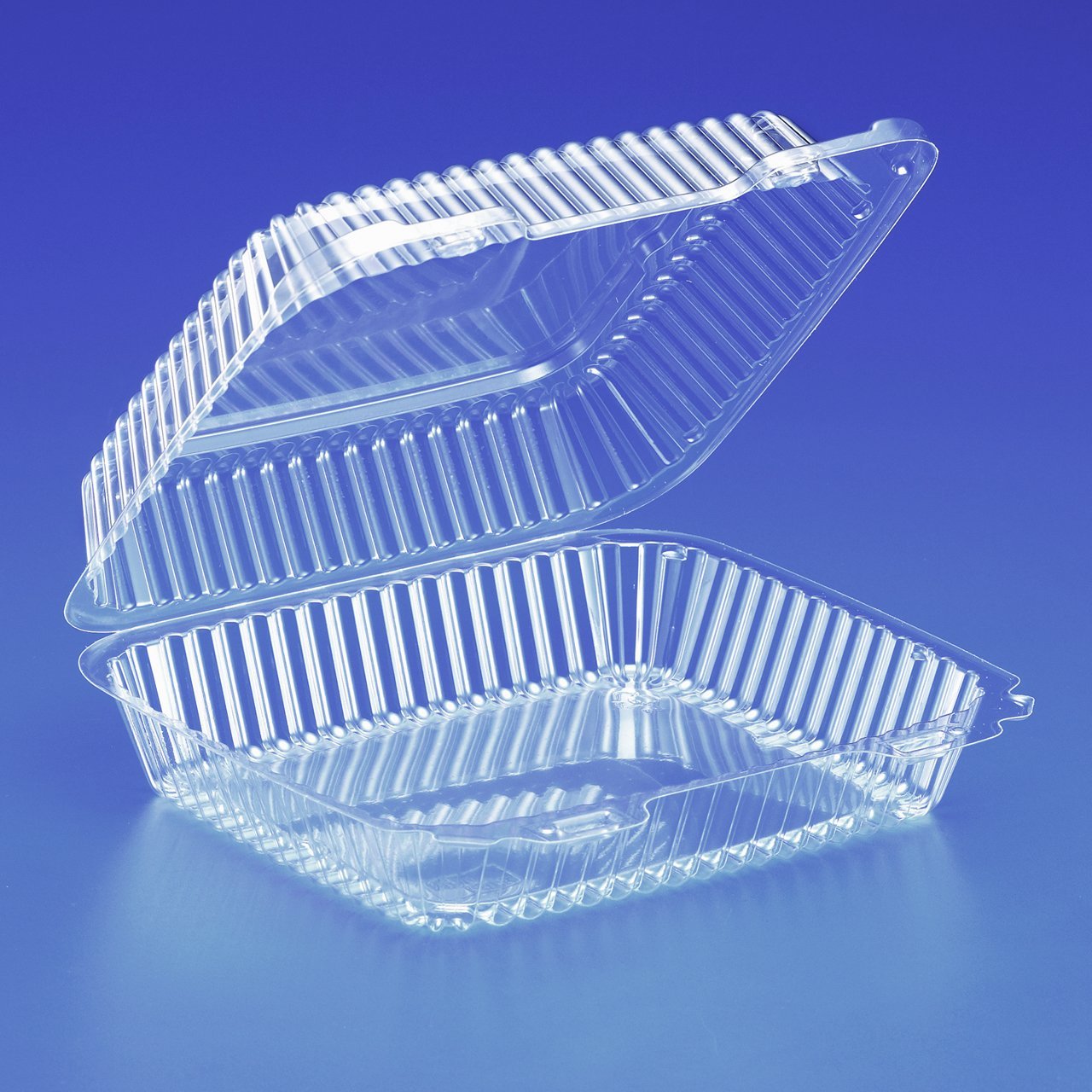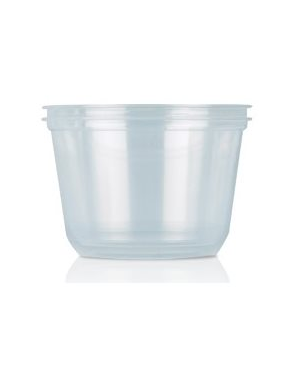A Comprehensive Overview to the Different Sorts Of Mass Plastic Containers Available Today
Bulk plastic containers play a vital role in various markets, using services for storage and transport. Their varied kinds cater to different needs, from stiff alternatives for solid materials to flexible containers fitting various shapes. Each kind provides distinctive benefits, making it necessary to comprehend their applications and features. As markets develop, so do the needs for efficient container services. What factors should one think about when selecting the ideal bulk container?
Overview of Bulk Plastic Containers

Sorts Of Mass Plastic Containers
Mass plastic containers been available in various types, each matched to specific applications. Stiff bulk containers, flexible mass containers, and intermediate mass containers stand for the main groups, each offering unique advantages. Recognizing these types is crucial for choosing the right container for transferring and storing products.

Rigid Bulk Containers
Inflexible bulk containers are crucial for efficient storage and transport of different products across industries. These containers are usually constructed from resilient plastics, allowing them to endure rough handling and environmental problems. They come in various shapes and sizes, including containers, drums, and totes, making them ideal for keeping everything from granular compounds to fluids. Inflexible containers commonly feature strengthened wall surfaces and secure lids, guaranteeing the materials remain protected throughout transit. Their stackable design makes best use of storage space, making them suitable for warehouses and producing facilities. In addition, lots of inflexible mass containers are recyclable and reusable, adding to sustainability efforts. Overall, their effectiveness and versatility make inflexible bulk containers a crucial part in supply chain procedures.
Versatile Bulk Containers
Flexible mass containers, usually described as flexible intermediate mass containers (FIBCs), function as a versatile solution for keeping a range and moving of dry products. These containers are generally made from woven polypropylene and are made to be lightweight yet solid, permitting reliable handling and stacking. Their versatility allows them to accommodate various shapes and dimensions, making them suitable for items ranging from grains to chemicals. FIBCs can be geared up with attributes such as spouts for easy filling and discharge, in addition to safety coverings for boosted resilience. Additionally, they are recyclable and recyclable, contributing to lasting methods in sectors such as agriculture, food processing, and construction. Generally, adaptable mass containers provide a effective and affordable alternative for mass product monitoring.
Intermediate Bulk Containers
Intermediate bulk containers (IBCs) are important for the effective transportation and storage space of fluids and granular products across various markets. These containers typically have a capability varying from 275 to 330 gallons and are made for easy dealing with and stacking. Made from sturdy products like high-density polyethylene or steel, IBCs give superb defense versus contamination and ecological elements. Their layout consists of functions such as an integrated pallet for forklift accessibility and a removable top for easy filling and cleaning. IBCs are extensively made use of in chemical, food, and pharmaceutical sectors, making certain compliance with safety and security regulations. Their flexibility and reusability make them a cost-efficient solution for mass storage and transportation, adding to supply chain effectiveness and sustainability.
Features and Advantages of Bulk Plastic Containers
Bulk plastic containers are essential tools in various markets, providing a combination of resilience and practicality. These containers are created from premium products, making them resistant to effects, chemicals, and environmental elements. This toughness guarantees product security during storage and transportation.
Furthermore, bulk plastic containers are light-weight, facilitating ease of handling and reducing shipping expenses. Their stackable style makes the most of storage effectiveness, permitting for optimized storage facility room. Numerous models include secure covers or closures, supplying an impermeable seal that protects against and maintains components contamination.
Bulk plastic containers are frequently multiple-use and recyclable, contributing to lasting methods. Their versatility permits a vast array of applications, from food storage to commercial usage, boosting their worth throughout markets. Businesses take advantage of the lengthy lifespan and low upkeep demands of these containers, making them an affordable service for both lasting and short-term requirements.
Industries That Make Use Of Bulk Plastic Containers
Different industries take advantage of the usage of bulk plastic containers, each leveraging their distinct residential properties for details applications. The food and beverage industry counts on these containers for risk-free storage space and transportation of items, while the chemical manufacturing sector utilizes them for dealing with harmful products. Additionally, the pharmaceutical circulation requires emphasize the significance of resilience and cleanliness in product packaging solutions.
Food and Beverage Market
As the need for risk-free and reliable storage space options remains to increase, the food and beverage market progressively counts on mass plastic containers for their operational requirements. These containers offer robust, lightweight, and flexible choices for storing active ingredients, completed products, and waste materials. Made from food-grade materials, they ensure compliance with wellness and safety criteria. Numerous styles, such as stackable containers and carry boxes, maximize area during transport and storage space, improving logistical efficiency. Additionally, the transparency of some mass containers enables for easy supply monitoring, reducing the danger of perishing. With the sector's emphasis on sustainability, several makers are now supplying reusable and recyclable choices, straightening with green techniques while fulfilling the high needs of food safety and hygiene.
Chemical Manufacturing Industry
The chemical production sector counts greatly on mass plastic containers for the efficient and secure storage space of raw materials, intermediates, and finished items. These containers are created to stand up to different chemicals, ensuring that harmful products do not leak or weaken the container itself. Usual types include high-density polyethylene (HDPE) and polypropylene containers, which offer superb chemical resistance and sturdiness. Their lightweight nature and stackable layout promote transport and storage, maximizing room in making facilities. Additionally, lots of mass plastic containers come with features such as tamper-evident seals and easy-to-read labeling, boosting security and conformity with industry guidelines. In general, mass plastic containers are essential to the chemical manufacturing process, supplying trustworthy solutions for handling varied materials.
Drug Distribution Needs
Pharmaceutical distribution depends on mass plastic containers to meet strict safety and security and regulatory requirements. These containers are crucial for saving a selection and transporting of pharmaceutical items, including energetic pharmaceutical active ingredients (APIs) and completed medicines. Their design guarantees security this link against light, contamination, and dampness, keeping the integrity of sensitive products. In addition, bulk plastic containers are certified with market standards such as Good Production Practices (GMP) and are often made from products that are FDA-approved. Making use of these containers enhances effectiveness in the supply chain, enabling secure, large-scale distribution while minimizing waste. Companies in the pharmaceutical industry prioritize using durable, leak-proof, and tamper-evident containers to ensure product security and top quality throughout the logistics process.
Considerations for Choosing the Right Container
When choosing the suitable bulk plastic container, various elements should be very carefully weighed to guarantee optimal capability and safety. The nature of the products to be kept click here for more is extremely important; compatibility with the container's product can influence stability and security. Bulk Plastic Containers. Additionally, the container's size and shape have to align with the storage space and transportation needs, ensuring reliable room application
Tons capacity is an additional essential factor to consider, as it should suit the weight of contents without danger of damage or failing. The design functions, such as venting or lids, can affect usability and accessibility. Conformity with industry regulations is necessary, particularly in markets like drugs, where safety criteria are strict.
The anticipated life-span and toughness of the container need to be assessed to confirm it satisfies the functional demands without constant replacement. By assessing these elements, one can choose the most ideal mass plastic container for specific applications.
Environmental Impact and Sustainability
As services significantly focus on sustainability, the ecological influence of bulk plastic containers has come under scrutiny. These containers, frequently made from materials such as polyethylene or polypropylene, contribute considerably to plastic waste otherwise handled appropriately. Their production includes the consumption of nonrenewable fuel sources, which can lead to raised greenhouse gas discharges. Developments in recycling innovation and the development of naturally degradable options are aiding to minimize these issues.
Many suppliers are embracing practices that stress the use of recycled products, consequently lowering the demand for virgin plastics. The resilience of mass plastic containers likewise plays a duty; they are designed to be reused numerous times, which can minimize their total environmental impact when contrasted to single-use options. Inevitably, the market faces the obstacle of stabilizing capability with environmental duty, making lasting practices necessary for the future of bulk plastic containers.
Ideal Practices for Storage and Transport
Reliable storage and transportation of mass plastic containers greatly influence both functional efficiency and sustainability. To maximize area, organizations ought to pile containers firmly, guaranteeing security and avoiding damage. Correct labeling is vital for very easy identification, which streamlines retrieval procedures. In addition, maintaining a clean and orderly storage space location decreases the danger of contamination and enhances security.
For transportation, picking the best automobile is essential; containers should be secured to prevent shifting during transit. Companies ought to likewise take into consideration using pallets to assist in easier loading and discharging. Regular evaluations of containers for deterioration can stop expensive substitutes.
Temperature level control is an additional crucial element, as severe problems can compromise the integrity of the plastic. Finally, training personnel on ideal techniques for handling and transport guarantees compliance and advertises a society of safety and security. By carrying out these finest practices, businesses can boost their functional performance while adding to ecological sustainability.
Regularly Asked Inquiries
How Do I Tidy Mass Plastic Containers Properly?
To tidy bulk plastic containers effectively, one need to rinse them with cozy water, utilize a mild cleaning agent and scrub with a soft brush. Rinse extensively, then permit to air dry completely prior to storage or reuse.
What Is the Lifespan of Mass Plastic Containers?
The life-span of mass plastic containers typically ranges from 5 to one decade, relying on the product, usage, and ecological problems. Proper upkeep and storage space can considerably extend their use and sturdiness over time.
Can Mass Plastic Containers Be Customized?

Do Bulk Plastic Containers Have Service Warranty Options?

Exist Laws for Utilizing Bulk Plastic Containers?
Yes, policies exist for utilizing bulk plastic containers, mainly concentrated on security, environmental effect, and material compliance. These policies guarantee that containers fulfill industry standards and are suitable for transporting article different substances safely and efficiently.
Inflexible bulk containers, versatile bulk containers, and intermediate mass containers represent the main groups, each offering one-of-a-kind advantages. Versatile bulk containers, often referred to as flexible intermediate mass containers (FIBCs), offer as a functional remedy for moving and storing a range of dry products. The chemical production industry depends greatly on bulk plastic containers for the effective and risk-free storage of raw materials, intermediates, and finished items. Bulk Plastic Containers. These containers are designed to stand up to different chemicals, ensuring that unsafe materials do not leakage or deteriorate the container itself. Furthermore, bulk plastic containers are compliant with market criteria such as Good Manufacturing Practices (GMP) and are often made from materials that are FDA-approved